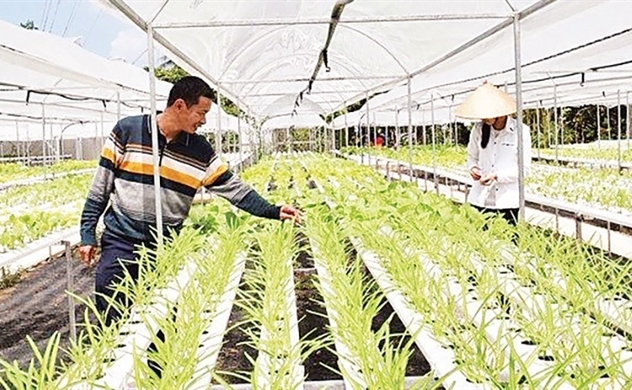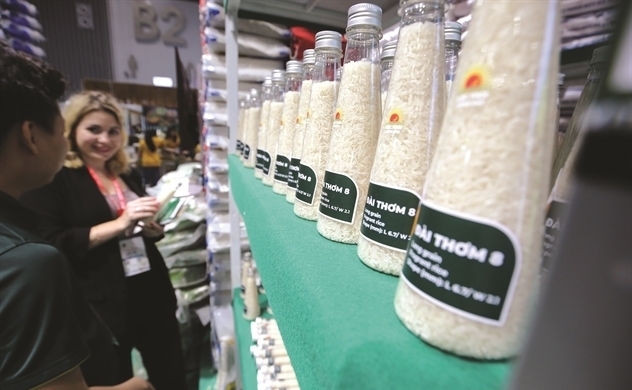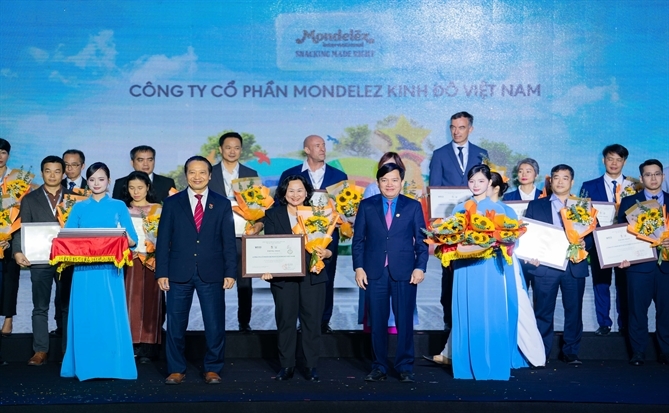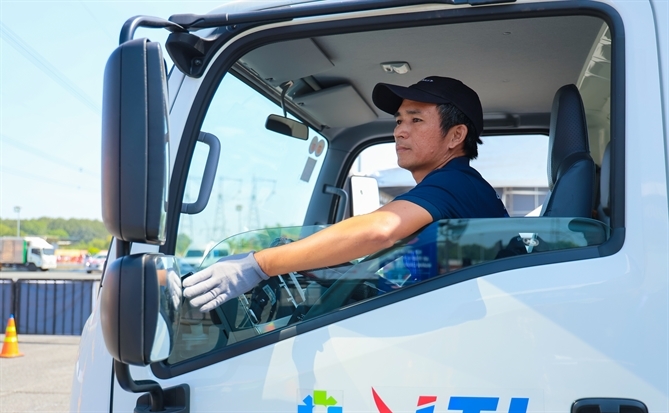Producing and processing agricultural products in association with market demand

Growing clean vegetables by a hydroponic method in Dong Thap Province. Photo by VNA.
According to data from the Ministry of Agriculture and Rural Development, the whole region is currently contributing 32% of the GDP of the whole agricultural sector, contributing to ensuring national food security and exporting agricultural products.
Besides the localities that promote the potential and advantages of key agricultural products, there are still many localities that have difficulty adding value but only sell raw materials.
Therefore, to bring into full play the potential, in addition to improving the quality of agricultural products, there should be a breakthrough in mechanisms and policies associated with cooperative development in each locality.
Developing key agricultural products
Hau Giang is one of the leading provinces in the Mekong Delta in planning planting areas and promoting the production of key local products, under the motto of agricultural cultivation in the direction of diversity, and sustainability, with a focus on 5 main products: rice, jackfruit, seedless lemon, sliced fish, field eel and other typical and potential product groups of the locality: pineapple, soursop, and red-fleshed jackfruit.
According to the Hau Giang Provincial Department of Agriculture and Rural Development, the province has focused on developing high-quality agriculture, giving priority to the development of organic agriculture, and linking agriculture with tourism and agriculture high technology along the value chain, connecting the processing industry with the market.
Promoting the agricultural production process in the direction of the value chain, close to the market demand is also the determination of the entire agricultural sector in Ca Mau Province.
By the end of 2022, Ca Mau had 25 enterprises and cooperatives raising super-intensive shrimp applying high technology; 5 enterprises were granted certificates of hi-tech agricultural enterprises and 18 aquaculture units were certified with international standards (BAP, GlobalGAP, ASC); 19 units in the field of horticulture participate in the production of high-tech applications and organic production.
These are the results obtained from unprecedented decisions, taking infrastructure and supporting investment capital as a breakthrough in the province's agricultural development.
Building production linkages
According to the Ministry of Agriculture and Rural Development, creating linkages in production by guaranteed mechanisms so that products can achieve the best prices on the market has been and is the choice of agricultural cooperatives in localities.
At present, agricultural insurance policies are still limited. This is also the optimal solution for businesses and cooperatives to truly share benefits with farmers.
In addition to the efforts of enterprises and cooperatives in building production linkages and developing key products, localities also have support mechanisms and policies to promote regional economic development.
Hau Giang has set up the Cooperative Development Support Fund. This fund is supplemented with annual capital by the Provincial People's Committee, with a charter capital of over 32 billion VND and has been entrusted through the Provincial Bank for Social Policies for lending.
As a result, in the past 5 years (estimated to the end of 2022), the Fund loaned 74 cooperatives an amount of 43 billion VND, to invest in buying straw rolling machines, irrigation pumps, trucks, fertilizers, and pesticides; animals, consumption of commodity rice seeds, seedlings of all kinds, etc.
In Ca Mau Province, promoting the implementation of many support policies, such as policies on tax, land, credit, training and retraining resources for cooperatives, trade promotion, market expansion, applied science and technology, new establishment support, infrastructure investment policy, and cooperative support fund, has not only helped cooperatives gradually improve operational efficiency but also contributed to creating breakthroughs for key local products, to reach to international markets.
Thus, it is necessary to have new policies and specific regulations to encourage linkages in the production and consumption of agricultural products to meet the actual requirements.
Currently, the production capacity of the whole Mekong Delta accounts for 50% of rice production, 65% of aquaculture production and 70% of fruit production of the country; contributing up to 95% of rice exports and 60% of fish exports of the country; many world-class branded agricultural products.
Source: Nhân Dân

 TIẾNG VIỆT
TIẾNG VIỆT 










_131447820.png)







